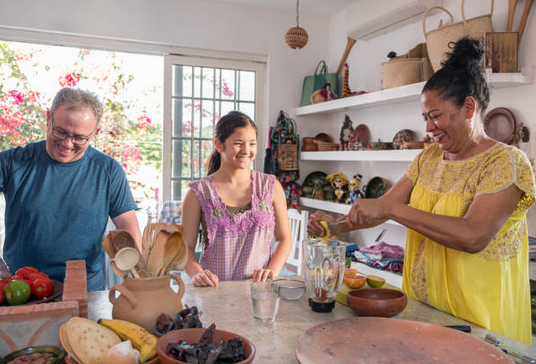- Admissions
- Programs & Courses
- Student Services
- Student Portal & Resources
- Academic Advising
- Course Registration
- Clubs, Activities, and Events Schedule
- Learning Centre
- IT Support
- Request Letters
- Living in Canada
- Housing & Accommodations
- Career Services
- Transcript Request
- Withdrawing from Courses
- Tax Information (T2202)
- Health & Wellness
- Authorized Leave
- GPA Calculator
- Pre-Departure Orientation
- New Student Orientation
- RISIA Services
- Scholarships & Bursaries
- Library
- Campus & Facilities
Homestay Families
- Home
- Student Services
- Housing & Accommodations
- Homestay
- Homestay Families
Open Your Doors to New Experiences & Cultures.
Host an international student and immerse yourself in the diverse cultures of the world, all while contributing to a student’s educational journey in Canada.

Coquitlam College’s Homestay program connects welcoming Canadian families with international students, offering them a safe, supportive home environment that fosters academic success and cultural exchange.
Supporting a Student’s Smooth Start in Vancouver
As a homestay family, you play a key role in helping international students transition to life in Canada. Many students choose homestay during their first few months to feel more at home in a new country. Our Homestay Coordinator works closely with you to ensure a great match—connecting you with a student who will benefit from your welcoming environment, home-cooked meals, and day-to-day support. Families are carefully screened and guided through the hosting process to ensure a safe, positive, and enriching experience for everyone involved.
Why Become a Homestay Family?

Share Canadian culture
Introduce students to local customs, holidays, and daily life while learning about their culture in return.
Make a difference
Provide a stable, caring home that helps students adjust to a new country and succeed in their studies.
Form lifelong bonds
Many host families and students stay in touch for years, creating lasting friendships across the globe.
Receive support and guidance
Our Homestay Coordinator is here to help you throughout the process, from matching to ongoing communication.

How to Become a Homestay Family
To make sure everyone has a safe and positive experience, all prospective homestay parents must complete the steps below:
- Submit an application: Please include 2 references
- Attend a Host Parent Interview: Meet with our team to talk through expectations, responsibilities, and the homestay experience.
- Schedule a Home Inspection: We arrange a home visit to ensure your home meets safety standards.
Note: Inspections take place at least once every two years. - Complete a Criminal Record & Vulnerable Sector Checks: All adult household members (18+) must provide a Criminal Record Check and Vulnerable Sector Check.
Note: These checks are required every three years.
Frequently Asked Questions
Applications for homestay families can be found here. Applications can be submitted online, in-person, or by mail. Please note that we do not accept applications over the phone.
A maximum of two students may stay with a homestay family.
No, students are entitled to a private room, so shared accommodation is not permitted. However, the bathroom and other household facilities can be shared.
No, students are responsible for their own transportation. Homestay parents can assist by showing them how to use a compass card and navigate the bus route.
The duration depends on the student’s program. Some students stay for one semester, while others stay for the entire length of their program until completion. We have three intakes, each one is equivalent to 3-4 months.
A custodian is a responsible Canadian citizen or permanent resident over the age of 25 who acts as a legal guardian for international students under 19. The Canadian government requires custodianship for all international students under this age to ensure they have proper care and support while in Canada.
As a custodian, your role is to provide guidance and support to the student during their time in Canada. This includes ensuring they attend classes, facilitating communication between the student and school staff regarding any issues, monitoring changes in behavior, offering advice, and ensuring a comfortable, safe living environment.
Custodians are typically chosen by the student’s family, often through referrals or a homestay program. They must meet specific requirements, such as a background check and legal documentation (Custodianship Declaration forms) signed by both the custodian and parents, which are then notarized for validity.
Custodians must act promptly in emergencies, which may include health issues, legal matters, or academic concerns. They should contact the parents and, if needed, local authorities. Custodians should also be familiar with local medical facilities and emergency services.
Custodians in BC have limited legal rights. They are not financially liable for the student’s actions but have authority to make decisions in emergencies. They also don’t have control over a student’s finances or other aspects of the student’s life without explicit consent.
Yes, in many cases in Vancouver, homestay parents also act as custodians, provided they meet the custodian requirements. This setup is often preferred for convenience and continuity in the student’s daily care and support.
If a custodian in Vancouver can no longer fulfill their responsibilities, they must notify the family immediately. The family will need to appoint a new custodian and complete a new Custodianship Declaration form. Schools and any other relevant authorities must also be informed.

Comments or Questions?
Penelope Cruz
Homestay Coordinator
604-939-6633 | Email
*In the event of an emergency only, please contact 604-862-7248.





